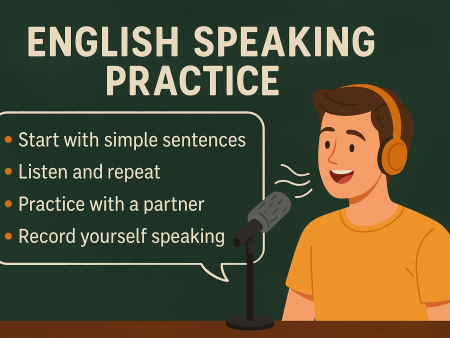Expanding your English vocabulary can open doors to better communication, deeper understanding, and countless opportunities. Whether you’re a beginner or looking to refine your skills, building a strong vocabulary is essential for expressing yourself clearly and confidently in both personal and professional settings.
Learning new words doesn’t have to feel overwhelming. With the right strategies and consistent practice, you can make steady progress while keeping the process enjoyable. From everyday conversations to mastering industry-specific terms, growing your vocabulary empowers you to connect with others and navigate the world more effectively.
Why Learning English Vocabulary Is Important
Learning English vocabulary enhances your ability to communicate effectively in diverse situations. A rich vocabulary lets you express ideas clearly, whether in casual conversations, academic discussions, or professional presentations. It opens up opportunities for meaningful interactions by ensuring others understand your thoughts with precision.
Understanding context improves when your vocabulary grows. Familiarity with a wide range of English words reduces misunderstandings in reading, writing, and speaking. Greater word knowledge also simplifies interpreting texts like books, articles, and instructions.
Expanding your vocabulary boosts confidence. Knowing the right words lets you articulate opinions or respond to questions without hesitation. For learners, applying new words in real-life contexts develops fluency and reinforces retention.
Vocabulary building strengthens career prospects. Mastery of English vocabulary improves job performance in fields like customer service, marketing, and public relations, where language skills are essential. For global roles, it ensures effective collaboration and adaptability across language barriers.
When you focus on learning English vocabulary, you’re equipping yourself with tools for lifelong learning and better communication.
Key Strategies To Learn English Vocabulary
Building your English vocabulary requires effective methods tailored to your learning style. Focus on practical techniques to make the process engaging and productive.
Using Flashcards
Flashcards provide an efficient way to learn and review English vocabulary. Write a word on one side and its definition, example sentence, or a visual cue on the other. Use digital options like Quizlet to access pre-made decks or create custom sets. Regularly shuffle and review the cards to ensure retention of both familiar and new words.
Learning Through Context
Learn English vocabulary effectively by focusing on how words function in real-life settings. Read books, articles, or listen to podcasts to see vocabulary used in its natural context. Highlight words you’re unfamiliar with and include them in your sentences to understand nuances. Regular exposure to contextual usage deepens comprehension and memory.
Leveraging Language Apps
Language apps simplify learning English vocabulary through interactive tools. Apps like Duolingo or Memrise include gamified exercises like quizzes, word association tasks, and pronunciation practice. Many apps also track your progress, helping you focus on improving weak areas. For advanced learning, explore apps with features like themed word collections or topic-specific vocabulary lists.
Best Resources For Expanding Your Vocabulary
Expanding your English vocabulary becomes easier and more effective with access to the right resources. These tools provide practical and engaging ways to build a strong set of words for various contexts.
Books And Guides
Books and guides tailored to English vocabulary learning offer structured content. Popular options like “Word Power Made Easy” by Norman Lewis focus on understanding root words and their derivatives. These resources provide exercises, word lists, and context-based explanations to reinforce learning. Opt for genre-specific books, such as those on business English or academic writing, if your goals are career- or education-oriented.
Online Courses
Online courses offer flexibility and expert-led instruction for building vocabulary. Platforms like Coursera and Udemy host programs such as “Learn English Vocabulary for Beginners” or “Expand Academic Vocabulary,” which cover essential word groups and usage. Many courses incorporate multimedia materials, quizzes, and community interaction, ensuring comprehensive engagement. Choose courses with personalized learning paths to match your skill level and progress efficiently.
Mobile Applications
Mobile applications transform vocabulary learning into an interactive experience. Apps like Quizlet, Memrise, and Anki use spaced repetition, visual aids, and gamified methods to make retention effective. Language apps targeting English learners, like Duolingo or Babbel, integrate vocabulary practice into thematic lessons. For advanced learners, apps like Vocabulary.com offer contextual examples and adaptive learning to deepen your word knowledge.
Common Challenges When Learning Vocabulary
Expanding your English vocabulary requires consistent effort, yet challenges like retention difficulties and language barriers often arise. Addressing these obstacles effectively ensures steady progress.
Retention And Recall Issues
Memory limitations often hinder vocabulary development. Learning dozens of words at once can result in forgetting them quickly if there’s no effective review process. Without context, words become harder to recall or use correctly in communication. Regular practice, focused on connecting new vocabulary to meaningful experiences, is essential for long-term retention.
For example, associating a word like “meticulous” with a detailed task you’ve done helps solidify its meaning. Techniques such as spaced repetition systems (SRS) or using interactive tools like Quizlet gamify the process, making it more engaging.
Overcoming Language Barriers
Pronunciation differences, cultural distinctions, and unfamiliar grammar often make mastering English vocabulary challenging. Words can possess subtle meanings that don’t translate directly into your native language, making them difficult to grasp.
Immersing yourself in English-speaking environments, whether online or in person, exposes you to contextual usage. Focus on listening to native speakers to understand word nuances. Watching movies or reading books designed for English learners helps bridge these barriers while expanding your word pool.
Tips For Effective Vocabulary Practice
Effective vocabulary practice requires tailored strategies that encourage consistent learning and increase retention.
Consistency And Daily Practice
Practicing daily enhances your ability to learn English vocabulary effectively. Allocate specific times each day for focused study, ensuring that it becomes a consistent habit. Use tools like vocabulary journals, where you record and review new words alongside their definitions and examples. Engage in short, manageable sessions to avoid burnout while maintaining regular progress. Prioritize quality learning by practicing fewer words deeply rather than memorizing large lists passively.
Utilize spaced repetition to reinforce retention. Apps like Anki or Quizlet can help you revisit learned words at gradually increasing intervals. Integrate vocabulary practice into routine activities—listen to podcasts, read articles, or watch videos in English to encounter words in real-life contexts.
Engaging In Conversations
Incorporate learned words into conversations to live the vocabulary actively. Participate in discussions with peers, tutors, or language exchange partners, focusing on your ability to use new terms meaningfully. Emphasize daily application of words connected to your personal or professional interests to make learning English vocabulary relevant to your needs.
Join online forums or communication groups centered around topics you’re passionate about. Platforms like Meetup or language-specific social media communities provide opportunities to practice with native or advanced English speakers. Implement feedback from conversations to refine pronunciation, enhance grammar comprehension, and build lasting connections to words in context.
Conclusion
Expanding your English vocabulary opens the door to clearer communication, greater confidence, and countless opportunities in both personal and professional settings. By embracing consistent practice and using effective strategies, you can make vocabulary learning an engaging and rewarding journey.
With the right tools and resources at your disposal, you’re equipped to overcome challenges and build a strong foundation for lifelong learning. Every new word you master brings you closer to expressing yourself with precision and understanding the world around you more deeply.









